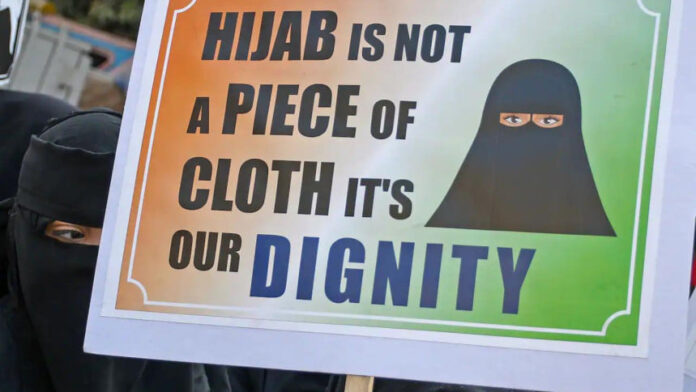The controversy over the ban on hijab for female students in the southern Indian state of Karnataka has erupted in Australia, a coastal country in Tasman.
The court is hearing the Karnataka state authorities’ recent ban on female students wearing hijab in educational institutions. Meanwhile, Australians of Indian descent have staged protests in Melbourne and Sydney, Australia.
According to the protesters, such a ban would not only affect the Muslims living in India, but also the whole world. When Muslim girls are banned from wearing the hijab, they say, it is seen as a deceptive way to educate them, pursue their dreams and prevent them from reaching their career goals.
The protesters also told the Australian media that the ban reinforces the notion that you do not enjoy the same freedom as others around you.
Amanda Gilbertson, a senior research fellow at the University of Melbourne’s School of Social and Political Science, told NBS News: “The Constitution of India is based on a” positive definition of secularism. ” According to India’s census, the literacy rate among the country’s Muslims is much lower than the national population. But they are constantly improving. If the hijab is banned, that development may be hampered.
“If the high court rules in favor of banning hijab in educational institutions, it will affect India’s secularism, on the basis of which its constitution was drafted,” he added.
The Hindu nationalist Bharatiya Janata Party (BJP), led by Indian Prime Minister Narendra Modi, is now in power in Karnataka.
The hijab debate is taking place in Karnataka at a time when assembly elections are underway in several important states of the country. Karnataka will have assembly elections next year, followed by the country’s next Lok Sabha elections in May next year.
Muslim families in Karnataka say the ban on the hijab is to put more pressure on them. Due to this ban, students wearing hijab are barred from entering many educational institutions.





